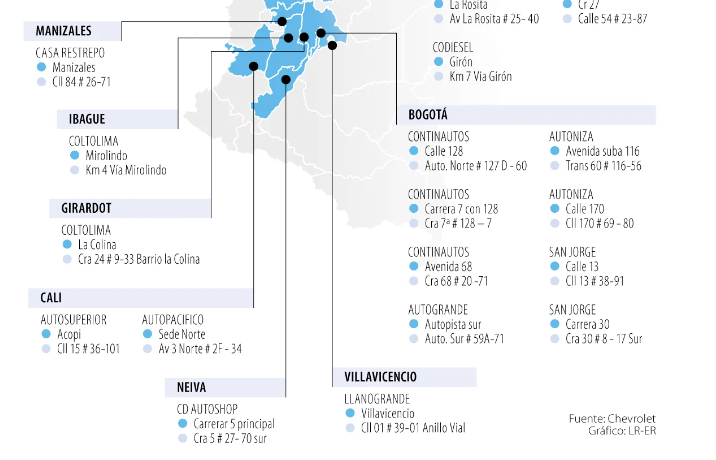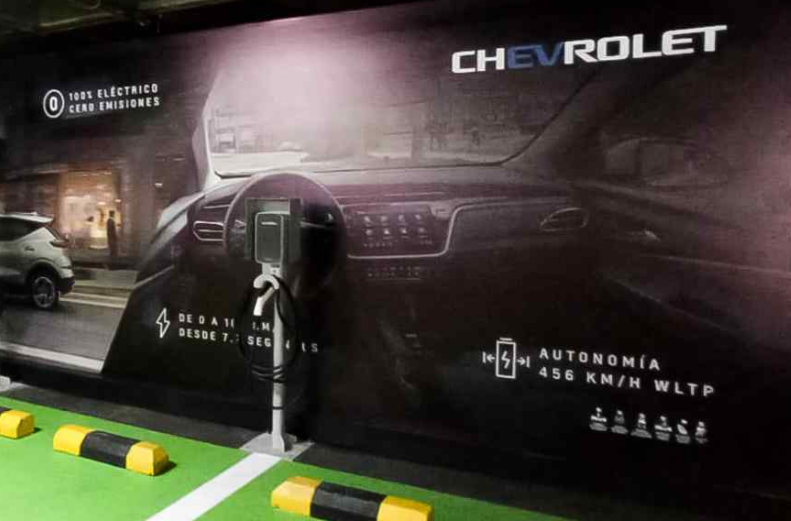Chevrolet continues to make progress in strengthening its charging infrastructure in Colombia, where it already has a network of 27 points for the supply of Chevrolet cars, but also with the possibility of receiving cars from other brands, with the aim of promoting sustainable mobility.
According to information disclosed by the newspaper La República, the Chevrolet centers are distributed among Bogotá, Manizales, Cali, Cúcuta, Bucaramanga, Villavicencio, Neiva, Ibagué, Girardot, Barranquilla, Cartagena, Medellín and Cali.
Read also: Colombia: Resolution Issued to Regulate and Promote Electromobility
In Bogota, they even have special partners such as the Andino shopping mall, the Movistar Arena and the El Nogal Club. The most recent report on the sale of electric vehicles in August was 291 units.
The figure represented an increase of 89%, since in that period the figure was 154, according to the report of the National Association of Businessmen of Colombia, Andi, and the National Federation of Merchants, Fenalco.

Great Benefits
The production of electric vehicles is even simpler and more beneficial for the environment, since, according to the U.S. organization, Ernst & Young Global, it has 20 parts, while a combustion or gas one is composed of an average of 2,000.
From home, people can charge their cars in an estimated 30 minutes with a 150 KW charger, while a 9 KW charger takes eight to nine hours.
Incentives
Recently, the Colombian Ministry of Mines and Energy published the draft resolution establishing the interoperability conditions for public access charging stations for electric and plug-in hybrid vehicles.
The main objective of the measure is to promote electric mobility in the country, through facilities for the purchase and use of new energy cars and access to charging points.
The legal mechanism is focused on articulating the formulation, adoption and implementation of the public policy of the administrative sector of mines and energy to coordinate the use.
It also establishes the interoperability conditions for public access charging stations for electric and plug-in hybrid vehicles.







